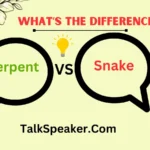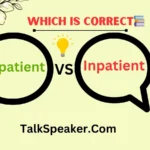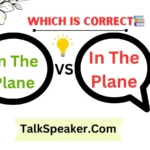In the world of professional communication, phrases like “Looking Forward to Working With You” are commonplace. Whether you’re drafting a job application, sending a follow-up email, or introducing yourself to a new team, the way you express enthusiasm and professionalism can significantly impact your message.
This comprehensive guide will explore the usage, appropriateness, and impact of this phrase to help you use it effectively in your professional communications.
Understanding the Phrase: “Looking Forward to Working With You”
The phrase “Looking Forward to Working With You” is often used to convey anticipation and eagerness about future collaboration. It combines the expression of eagerness (“looking forward to”) with a commitment to future work (“working with you”).
Breakdown of the Phrase’s Components
- Looking Forward To: This is a phrasal verb that indicates anticipation or excitement about a future event.
- Working With You: This part specifies the action and the person involved, emphasizing the collaborative aspect.
By putting these components together, the phrase expresses both a positive outlook and a commitment to future teamwork.
Grammar Behind the Phrase
Understanding the grammar of “Looking Forward to Working With You” can help you use it correctly and avoid common mistakes.
Detailed Analysis of Grammar and Structure
- “Looking Forward To” as a Phrasal Verb: This is a combination of the verb “look forward” and the preposition “to,” followed by a gerund (verb + -ing). It means anticipating something with pleasure.
- The Gerund Form “Working”: In this phrase, “working” acts as a noun, describing the action you are anticipating.
Common Grammatical Mistakes to Avoid
- Incorrect Use of Tenses: Ensure that the tense matches the context. For instance, use “looking forward to working” instead of “looked forward to working.”
- Misplaced Prepositions: Avoid saying “looking forward for working with you,” which is incorrect. The correct preposition is “to.”
Context and Appropriateness
Using “Looking Forward to Working With You” appropriately depends on the context in which you use it. It’s essential to understand when it’s suitable and when it might not fit.
Situations Where the Phrase is Appropriate
- Initial Communications: When you first engage with someone about a new project or job, expressing eagerness sets a positive tone.
- Follow-Up Messages: After an initial meeting or interview, using this phrase can reinforce your enthusiasm.
When the Phrase Might Be Less Suitable
- Formal Contracts or Agreements: In very formal documents, this phrase might be seen as too casual. Instead, opt for more formal language.
- Late Stages of Communication: If the relationship is already established and moving forward, it might be redundant.
Tone and Impression
The tone conveyed by “Looking Forward to Working With You” is generally positive and professional. It shows enthusiasm and readiness to engage, which can positively affect the recipient’s perception.
How the Phrase Affects Professionalism and Enthusiasm
- Positive Impact: Demonstrates enthusiasm and a proactive attitude.
- Potential Pitfalls: Overuse or improper context might make it seem insincere or formulaic.
Formality and Professionalism
Evaluating the formality of “Looking Forward to Working With You” helps ensure it matches the tone of your communication.
Comparing to Alternatives
- More Formal Alternatives:
- “Anticipating Our Collaboration”
- “Eager to Begin Our Partnership”
- Less Formal Alternatives:
- “Excited to Work Together”
- “Can’t Wait to Get Started”
When to Choose Different Phrasings
- Formal Settings: Use more formal alternatives when writing to high-level executives or in formal proposals.
- Casual Settings: In more relaxed environments or among familiar colleagues, informal alternatives can be more fitting.
Examples of Usage in Professional Communications
Effective use of “Looking Forward to Working With You” can be demonstrated through various examples.
Introducing Yourself to a New Team or Collaborator
Example Email:
markdown
Copy code
Subject: Excited to Join the Team!
Dear [Name],
I am thrilled to join the [Project/Team Name] team. I have been looking forward to working with you all and contributing to our upcoming projects. I am confident that together, we will achieve great results.
Best regards,
[Your Name]
As a Sign-Off in a Business Letter or Email
Example Sign-Off:
markdown
Copy code
Looking forward to working with you on this exciting project.
Best,
[Your Name]
Synonyms and Alternatives
Using synonyms can add variety and adjust the tone of your communication.
List of Alternative Phrases
- “Eager to Collaborate”
- “Anticipating Our Partnership”
- “Excited to Work Together”
- “Keen to Start”
Impact on Professional Relationships
The phrase “Looking Forward to Working With You” can significantly influence how professional relationships develop.
Positive and Negative Outcomes
- Positive Impact: Builds rapport and demonstrates commitment.
- Negative Impact: If used excessively or inappropriately, it can appear insincere or cliché.
Crafting Effective Closing Remarks
The closing remarks in professional communication should reflect both your enthusiasm and the formality of the situation.
Tips for Effective Closings
- Match the Tone: Ensure your closing reflects the formality of the rest of your message.
- Be Genuine: Authenticity enhances the impact of your closing remarks.
Conclusion
Understanding and using “Looking Forward to Working With You” effectively can enhance your professional communication. By knowing when and how to use it, along with suitable alternatives, you can convey enthusiasm and professionalism in your business interactions.

Amelia Harris, a passionate educator, simplifies English grammar and vocabulary for learners of all levels. With her engaging style, mastering English has never been easie




